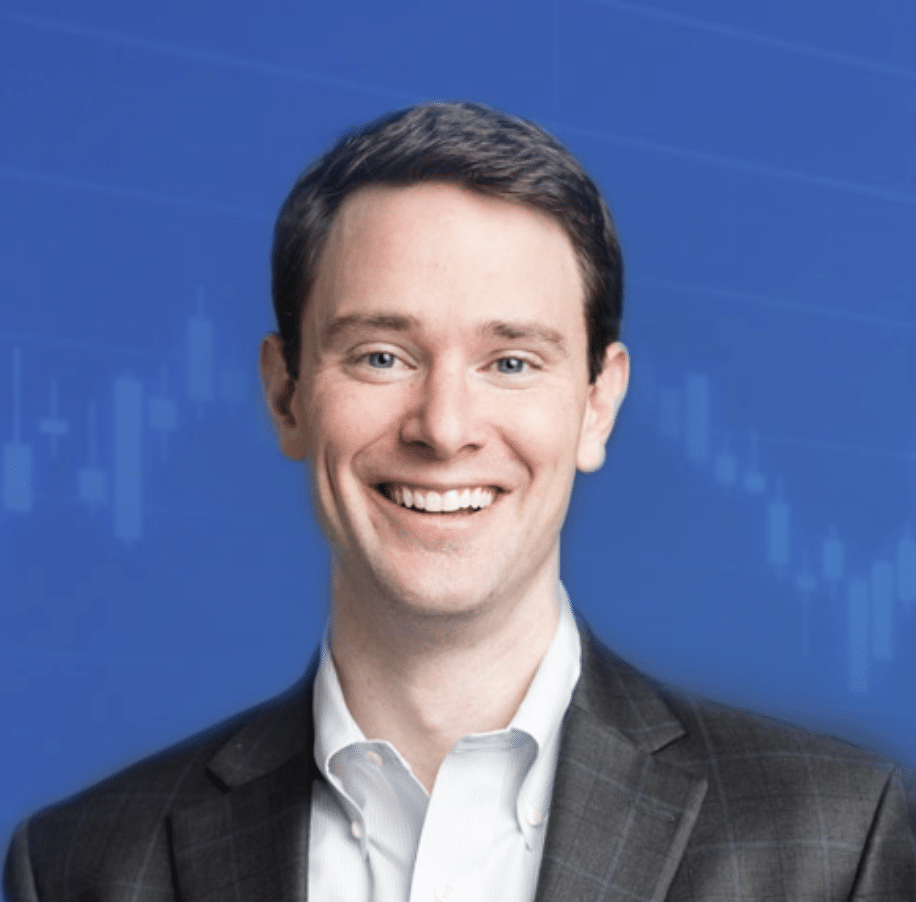Roger Whitney, host of Retirement Answer Man, shares his perspectives on helping individuals transition into retirement.
Listen now and learn:
- How retirement differs from past generations
- Ways that planning beyond traditional financial models can improve retirement outcomes
- The importance of having agency in your the life and retirement
Listen Now
Watch Now
Show Notes
Roger Whitney is host of the retirement podcast, Retirement Answer Man, which is one of the top retirement podcasts in iTunes with more than 4 million downloads and counting.
He is also the author of Rock Retirement: A Simple Guide to Help You Take Control and Be More Optimistic About The Future. He has been ranked by Investopedia as one of the Top 100 Most Influential Advisors in each of the past five years.
Here are some of the notes I took during our conversation…
1:40 – People Are Retiring Differently Than Past Generations
The image we have for the traditional retiree is focused on sitting on the park bench, watching life, and finally having a chance to rest.
The modern retiree is very different – they see it as their chance to go play in the playground now that they have time freedom after leaving full-time work. It’s their chance to explore and play and do things, which is very different than past generations.
They’re also going to live longer, be healthier, and be more active than any other generation in history. And most of them are going to have a pension.
This creates a very different planning dynamic than what a lot of financial planning was originally designed for.
3:05 – Planning That Goes Beyond The Numbers
If you’re going to live roughly a third of your life not working, that’s a lot. The modern retiree is going to have to figure out what their new identity is going to be.
Traditional financial planning tries to boil life down to a simple math problem that can be figured out. Partly because the process was designed by investment managers, financial planners, insurance agents, people that loved all the geeky numbers, and they were comfortable there. And partly because everything is focused on investments or products as the hub of the process – it always comes back to those things.
When you pair that with a modern retiree, it’s not the best match because an advisor’s message to individuals ends up being “trust the long-term numbers, it’s going to be okay, trust me.”
But that takes away one thing that people really need when they’re facing this big life change, which is hope.
When you’re retiring, say at 60 and you’re looking forward to 30 years with no pension, you see these long-term models, and we see all the uncertainty that’s going on in the world, it’s hard to have hope.
You need three things for hope:
- An inspiring goal about a future state for yourself.
- Agency, or the confidence that you can act to make that inspiring goal true.
- Pathways of things you can do to exercise your agency to make the inspiring goal happen or occur.
The traditional financial planning process doesn’t really help people do that, as well as it could.
6:30 – Designing A Life You Can Enjoy On Your Way To The End Destination
People don’t live in a spreadsheet. And the math answer isn’t always going to be the right answer for the client, or for any given person.
You are also trying to balance this tradeoff between your current life because you want to enjoy the journey as much as the destination, as well as setting yourself up so that when you reach your destination.
We hear a lot about the things we should be doing to create a retirement – tasks and action items – but we don’t spend nearly as much time talking about how we actually go about doing it.
Could you honestly answer the question: what do you want for the rest of your life?
The world will be different 10-15 years from now, but you yourself are not going to be the same version of yourself 10 or 15 years from now.
When you’re planning for retirement, whether it’s financially or on the personal level, rather than try to figure all this stuff out in some deterministic way, it’s much more helpful to build a structure to manage all that uncertainty.
That involves having lots of little conversations to reassess, adjust, and then figure out what you want to do next.
Rather than sitting down and thinking you must figure out your purpose statement for the rest of your life, it’s better to have a working draft that’s a living document that can be continually adjusted. Using a process that focuses on how to have those ongoing little conversations to iterate and adjust as life unfolds is a healthier way to plan.
11:15 –Agile Financial Planning Process
We must accept uncertainty as a healthy part of the process.
We think so much about markets and economies, things that are fundamentally unknowable and uncontrollable. The foundation of an agile process is focusing on controlling the controllable and not spend too much time noodling on things that we can’t control like markets, economy, interest rates, etc.
We need long-term assumptions for planning, but you still must accept uncertainty.
Collaboration is a big component that leads to better results.
Rather than a simple delegation in which a client gives the advisor all of their information and the advisor tell them what to do, it’s healthier fcor the client to come with their life and think through how it can be done together.
From there, it’s lots of communication.
It doesn’t matter how many facts are behind you. You can’t just point to all the models and say: “Here’s how it looks. Don’t worry you’ll be okay.” That’s just faith. That’s not hope.
And I think having ownership of a plan and having some confidence that you have a system to be able to make little adjustments along the way, helps you get that agency and gives you a pathway.
There are an infinite number of potential outcomes, including some that are really bad. There are some that are really great, but people aren’t necessarily worried about those. We can’t control which future path we will follow, so we have a process where we’re constantly reassessing what is important to us, what resources we have, what are risks and opportunities, etc. We can take little baby actions on and make lots of little adjustments along the way.
Traditional planning is a deterministic process. We don’t check in nearly as much as we should to make sure that we don’t have a change in our desires or life that requires adjustment.
20:23 – Spending to Create A More Fulfilling Retirement
Assuming you did a lot of things right when saving for retirement, one problem can be that you’ve grown accustomed to denying yourself in order to save for the future and see your assets grow. Perhaps you get a rush from seeing your net worth grow from X to Y.
Then when you get to retirement, everything changes. You lose your superpower of being able to earn income. It’s scary to lose agency like that and start spending this money.
It’s like a bodybuilder that has a huge upper body but never works on their legs. Retirees have to embrace the fact that their spending muscles aren’t very well developed.
If you stay in that mindset, then you’ll get to an age like 80 or so and realize that you’re going to have way more money than you need. As soon as you have that thought, you’re going to wonder what you could have done.
Sure, you can spend the money in your 80s, but you won’t have the same energy. So people look back and their 60s and 70s and say: “What could I have done?”
It’s important to be aware of this and start to overcome some of our frugality earlier in retirement.
24:00 – Rock Retirement Club
The Rock Retirement Club came out of the fact that Roger hasn’t been accepting clients for nearly two years.
Because Roger’s show reaches so many people, he was hearing that there’s no place to get world-class education on how to actually rock retirement from a financial and non-financial perspective.
So Roger created a club to be a safe place where there’s no selling, no marketing, just high-quality education, and tools. The other aspect of the club is the community – they have 800 members that all have the same positive mindset focused on being good stewards of the money, and also being good stewards of their life.
26:30 – Books That Have Influenced Roger’s Way of Thinking
The Top Five Regrets of The Dying by Bronnie Ware
When you’re accumulating assets, you’re sowing. in retirement, you’re supposed to be reaping. Roger is a big believer in regret minimization so that when he looks back at the end of life he can say: “Heck yeah, that was awesome” as much as he can. The top five regrets from the book
- I wish I had the courage to live a life true to myself.
- I wish I hadn’t worked so hard.
- I wish I had the courage to express my feelings.
- I wish I had stayed in touch with my friends.
- I wish I had let myself be happier.
Our job in life in general, but especially in retirement, is to minimize these regrets. That has to do with money, but also knowing our identity and purpose.
Roger thinks of investment well beyond money. The point of being a long-term investor is to skim off excess capital, whether it’s personal capital or financial capital, and put that money to use so it’s available for use in the future.
When you’re a long term investor, you’re investing for those future versions of yourself to help make sure that they’re thriving.
Connect with Roger
Resources
- Why Expert Predictions Are Bullsh*t
- S&P 500 Total Return Attribution
- Submit your question for the show through my “Ask Me Anything” form
Get Your Finance Questions Answered
Do you have a financial or investing question you want answered? Submit your question through the “Ask Me Anything” form at the bottom of my podcast page.
If you enjoy the show, you can subscribe wherever you listen to podcasts, and please leave me a review. I read every single one and appreciate you taking the time to let me know what you think.
About the Podcast

Long term investing made simple. Most people enter the markets without understanding how to grow their wealth over the long term or clearly hit their financial goals. The Long Term Investor shows you how to proactively minimize taxes, hedge against rising inflation, and ride the waves of volatility with confidence.
Hosted by the advisor, Chief Investment Officer of Plancorp, and author of “Making Money Simple,” Peter Lazaroff shares practical advice on how to make smart investment decisions your future self with thank you for. A go-to source for top media outlets like CNBC, the Wall Street Journal, and CNN Money, Peter unpacks the clear, strategic, and calculated approach he uses to decisively manage over 5.5 billion in investments for clients at Plancorp.
Support the Show
Thank you for being a listener to The Long Term Investor Podcast. If you’d like to help spread the word and help other listeners find the show, please click here to leave a review.
Free Financial Assessment
Do you want to make smart decisions with your money? Discover your biggest opportunities in just a few questions with my Financial Wellness Assessment.

















